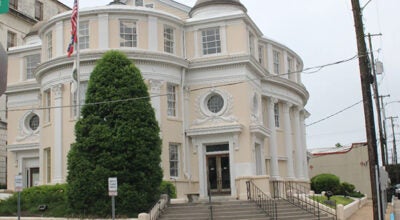Remembering soldiers’ tales
Published 11:07 am Friday, June 6, 2014
Seventy years ago today, 156,000 soldiers under American, Canadian and British command stormed the beaches of Normandy, France in an effort to break Nazi control over the country.
The things they saw were unimaginable, horrifying and brutal. Many of them never made it of those beaches alive, and more never lived to see the victorious end of the war in Europe.
Following are some recollections of three Vicksburg men who took part in the invasion, though none of the men are still alive today.
As director of Waterways Experiment Station, Col. Paul W. Thompson helped formulate the invasion program for the Allies.
“There were beaches on the western coasts of England similar to those in France. We set up realistic training facilities for the combat engineers who would spearhead the assaults on Omaha and Utah beaches,” Thompson told The Vicksburg Evening Post.
Thompson began conferences in May 1944 with officers from every branch of the British, French and American services.
“We couldn’t conceal from the Germans what we were doing. They knew there was going to be an invasion in the spring of 1944, they just didn’t know where.”
He would be wounded during the massive invasion he helped plan.
Floyd McKay was 37 years old when he landed on Omaha Beach, the deadliest spot on the French coast that day. His age earned him the nickname Pappy from the other men in the 81st Chemical Mortar battalion, which was attached to the 16th Regiment of the 1st Division for the 1st Army.
“I never saw more dead men in my life. And we went with some of the best outfits in Europe. It was rough, but I met some of the best people in my life,” he told The Post when he was 84.
Dr. Lucian Ferris was a physician at the Army general hospital in Swindon, England, on June 6, 1944.
“We had known something was up and were getting ready when the first wounded came in.”
The hospital could care for up to 1,500 patients at once and was soon filled.
Shortly after D-Day, Ferris was called in for a consultation with a soldier who had been wounded.
“He was very depressed because he couldn’t continue with his work during the invasion,” Ferris said of the soldier. “When we got to talking, we found we were both from Vicksburg.”
It was Col. Paul Thompson.
Though the two grew up within miles of each other, they had never met before.





